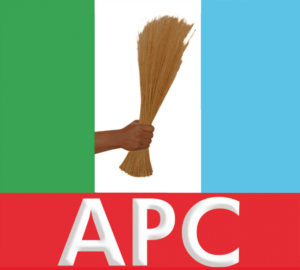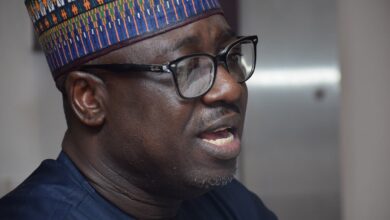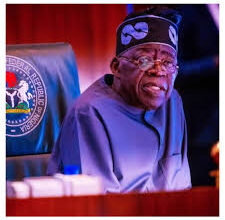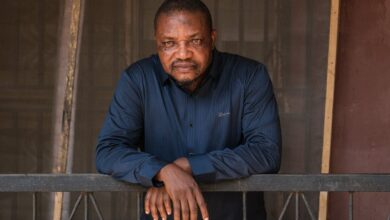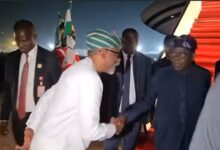Abuja-based poet, Emman Shehu, reminds PDP already acting out leaked US’ Ballard Report it denied as Fake

Nigerians have been reminded that the Peoples Democratic Party (PDP), since the conclusion of 2019 presidential election on Saturday 23 February, has continued to act out the same leaked report by its hired US lobbyist, Brian Ballard, which it earlier denied as fake.
According to a report titled, “CLASSIFIED REPORT LEAKED: APC leads major geopolitical zone as Saraki Lies uncovered”, the PDP was said to have been told by Ballard, whom it and its presidential candidate, Alhaji Atiku Abubakar hired at $1.1 million for a lobbying purposes, that Atiku would be defeated by President Muhammadu Buhari in the presidential election.

To this reason, the All Progressives Congress (APC) had issued a statement raising the alarm that the PDP and Atiku were planning a resort to bribing of major stakeholders in the conduct of the presidential election with a view to manipulate the process and its outcome with a view turning the table around against APC to their own favour.
The PDP however denied the leaked report saying it was fake and therefore untrue.
But Journalism teacher and poet, Dr. Emman Shehu, in a statement it permitted The DEFENDER to use on Monday, referred non-vulnerable Nigerians to report.
It said the leaked Ballard Report the PDP denied as fake they have been acting to the letter considering the many attempts they have made either cause violence to ensure the election did not hold, the arrest of Atiku’s lawyer with $4 million which is evidently with the anti-graft agency, Economic and Financial Crimes Commission (EFCC) and, after the election eventually held, efforts they have made to announce parallel polls results among others.
Emman Shehu said: “Cheap tricksters. The leaked Ballard Report they called fake is what they are acting out to the letter.”
Report leaking Ballard
Ballardpartners Report Shows That APC Report Lead Major Geopolitical Zones
As the race for the presidential election hit up, many reports of one party who has a better chance of winning in one particular zone across top geopolitical area in Nigeria have been making rounds online.
However, recent reports from Ballard partners, an international company hired by PDP to evaluate and determine PDP chance of winning by asking indigenes in certain areas in the country random question about their view on the current government and the candidate they will most likely vote for in the forthcoming general election shows that the incumbent president has a far better chance of retaining his position as the national Head.
The interview which was carried out in the field between January 3, 2018 and February 2, 2019 shows that Buhari is leading the vote with 9 points (51% / 42%). Undecideds are at 4% and all other will score a total of 3%. This leaves Atiku Abubakar, the presidential candidate for PDP and his team with more than enough work to do.
Below is the overall report sent to Bukola Saraki, the People’s Democratic party chief host and the senate president of Nigeria:
1. Buhari is leading the vote with 9
points (51% / 42%). Undecideds are at
4% and all other will score a total of 3%. So, Buhari cannot be stopped.
2. Voters generally approve of how
Buhari has been handling his job and
have positive view towards him.
3. Voters generally do not like Atiku
because
of the corruption issues around him. Poor for Buhari, middle class for Atiku
–
but poor are the majority.
4. Many people are disappointed with the
choice they have: 19% of PVC
holders said they don’t see the reason to vote.
5. No other candidate is going to get up to 2%.
6. About 87% of APC supporters endorse
Buhari, but only 71% of PDP supporters
endorse Atiku.
7. South-South and South-East which were
supposed to be the Atiku’s
regional strongholds, are not as much negative towards Buhari as where
expected.
Methodology
1. Interviews were carried out in the
field between January 3, 2018 and February 2, 2019.
Data collection method: face-to-face interviews.
2. Sample size: 12 654 interviews with an average of 342 in each state and FCT.
3. The overall margin of error is ±0.87% at 95% confidence level (±1.1% at 99% confidence level).
4. Sample stratification: 3-level
geographical stratification according to the official INEC data of voters
distribution with random
selection of households and respondents.
5. In each state not less than 250
respondents were interviewed, afterwards the data were weighted according to
the voters
distribution.
6.Dropout of the respondents: only those who have voters card were interviewed.
7. Interviews: native to the state in
which they were working or neighboring state with the same dominant language;
each one had
two training sessions and test task.
8. Figures may not sum to 100% due to rounding up.


